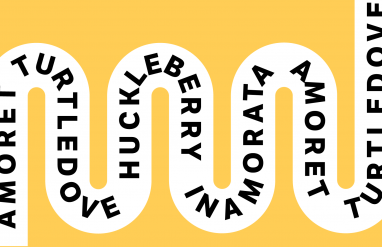When the sun comes up and the birds start chirping, it’s morning once again. The morning time is often a symbol of rebirth, renewal, and optimism in literature and poetry. We hope these cheerful quotes about good mornings will inspire you to carpe diem (Latin for “seize the day”), even if you’re not yet a morning person.
1.
Here, on the pulse of this new day
You may have the grace to look up and out
And into your sister’s eyes, and into
Your brother’s face, your country
And say simply
Very simply
With hope–
Good morning.
—Maya Angelou, “On the Pulse of Morning,” 1993
grace
Writer Maya Angelou is perhaps best known for her poem “Caged Bird.” In “On the Pulse of the Morning,” she describes similar themes as found in that famous poem. While she acknowledges the challenges of life, Angelou also celebrates those with the grace to face those challenges day after day. Grace here means “moral strength” moreso than “elegance or beauty of form, matter, or action.”
2.
[W]ith the new day comes new strength and new thoughts.
—Eleanor Roosevelt, My Day, January 8, 1936
strength
While many of the “good morning” quotes that we will see focus on the natural beauty of this time of day, hard-working First Lady Eleanor Roosevelt is typically focused on how to make the best use of a new day. Strength in this quote could refer both to “bodily, muscular power” and “moral power, firmness, courage.” In the morning, after a good night’s sleep, one has a renewed sense of vigor.
3.
Up at dawn, the dewy freshness of the hour, the morning rapture of the birds, the daily miracle of sunrise, set her heart in tune, and gave her Nature’s most healing balm.
—Louisa May Alcott, Work: A Story of Experience, 1873
balm
In Little Women author’s semi-autobiographical story Work, Louisa May Alcott shares Eleanor Roosevelt’s view on the value of getting down to business first thing in the morning, although she works in an appreciation of the natural world as well. She describes the morning time as a balm, a word that means “anything that heals, soothes, or mitigates pain.”
4.
The morning hour has gold in its mouth.
—German saying
gold
You may be familiar with the English-language expression the early bird gets the worm. The less-gross German version of this saying is “The morning hour has gold in its mouth,” or Morgenstund hat Gold im Mund in German. This is a way of describing both the golden beauty of the sunrise and the notion that you get more work done (and make more money) if you start early in the day.
5.
I believe in the sun. In the tangle of human failure of fear, greed, and forgetfulness, the sun gives me clarity.
—Joy Harjo, “Talking With the Sun,” 2015
clarity
Joy Harjo was the 23rd US Poet Laureate and the first Native American to hold the title. In her poem “Talking With the Sun,” she describes how she gets power and inspiration from the morning sun and other parts of the natural world. In particular, she notes that “the sun gives [her] clarity,” or “clearness or lucidity as to perception or understanding; freedom from indistinctness or ambiguity.” In other words, she has a better understanding of humans in the “light” of the natural world.
6.
The morning wind spreads its fresh smell.
We must get up and take that in,
that wind that lets us live.
Breathe before it’s gone.
—attributed to Rumi, “Judge a Moth by the Beauty of its Candle,” trans. Coleman Barks, 13th cent. [1993]
wind
The medieval Persian poet Rumi is celebrated for his writings that celebrate love, emotion, and the natural world. The most popular translations of these poems into English come from Coleman Barks. While these translations have been criticized in recent years for their lack of accuracy, they nonetheless remain popular. This quote from “Judge a Moth by the Beauty of its Candle” uses a metaphor to connect morning wind, “any stream of air,” with the breath and describes how they both contribute to life.
7.
Come, let us mount on the wings of the morning, flying for the joy of flight …
—Margaret Fuller, “Dryad Song,” 1900
wings
Margaret Fuller was part of a movement known as transcendentalism, “a philosophy emphasizing the intuitive and spiritual above the empirical.” Notable American transcendentalists include Ralph Waldo Emerson and Henry David Thoreau. Transcendentalists were particularly well-known for the quality of their writing about nature and romance, as we see in this quote from “Dryad Song.” The expression “the wings of the morning” describes the morning itself as a kind of bird, which draws on the connections between morning time and bird song.
8.
How sweet the morning air is! … How small we feel with our petty ambitions and strivings in the presence of the great elemental forces of Nature!
—Sherlock Holmes, in Sir Arthur Conan Doyle’s The Sign of the Four, 1890
elemental
Irascible private detective Sherlock Holmes, Sir Arthur Conan Doyle’s star, can sometimes get a bit carried away when he’s in a good mood. We see this temporary enthusiasm in this quote from The Sign of the Four, where Holmes waxes poetic about London mornings. He describes how humans are so small in comparison to the “great elemental forces of Nature.” Elemental in this phrase means “pertaining to the agencies, forces, or phenomena of physical nature.” It can also refer specifically to the four natural elements: earth, water, air, and fire.
9.
Our goal should be to live life in radical amazement … Get up in the morning and look at the world in a way that takes nothing for granted.
—Rabbi Abraham Heschel, God in Search of Man, 1976
radical
Rabbi Heschel was a noted theologian and civil rights activist. In his writings, he encourages a wonder at the world that is similar to what Sherlock Holmes was describing. He says that one should try to live in “radical amazement,” describing a sense of amazement that is foundational and pervasive. Heschel notes that the morning is a particularly good time to practice this perspective.
10.
[I]n the sweetness of friendship let there be laughter, and sharing of pleasures, for in the dew of little things the heart finds its morning and is refreshed.
—Khalil Gibran, Complete Works, c. 1900 [2006]
dew
Khalil Gibran was a writer, artist, and philosopher from the Ottoman Empire who spent much of his life in the United States. In this aphoristic piece of writing, Gibran notes the vibrancy and energy of morning in much the same way as the other authors have, but he puts a twist on it by connecting this feeling to that of friendship. He particularly celebrates the small joys of friendship, which he calls “the dew of little things,” an apt morning metaphor.
11.
Do you wish me a good morning, or mean that it is a good morning whether I want it or not; or that you feel good this morning; or that it is a morning to be good on?
—Gandalf, in J.R.R. Tolkien’s The Hobbit, 1937
good morning
While the quotes here have focused on the happy, joyful feelings some might experience in the morning, not everyone is a morning person. As a tip of the hat to the night owls out there, we have included this grumpy quote from the wizard Gandalf in J.R.R. Tolkien’s famous novel The Hobbit. When a perplexed Bilbo wishes him “Good morning,” Gandalf shoots back with this play on the many possible meanings of the phrase.
These morning quotes emphasize the joy and possibility of the earliest hours of the day. While there can be a more tired, gloomy aspect to this time of day, we hope these quotes will remind you to look on the bright side of the morning.













